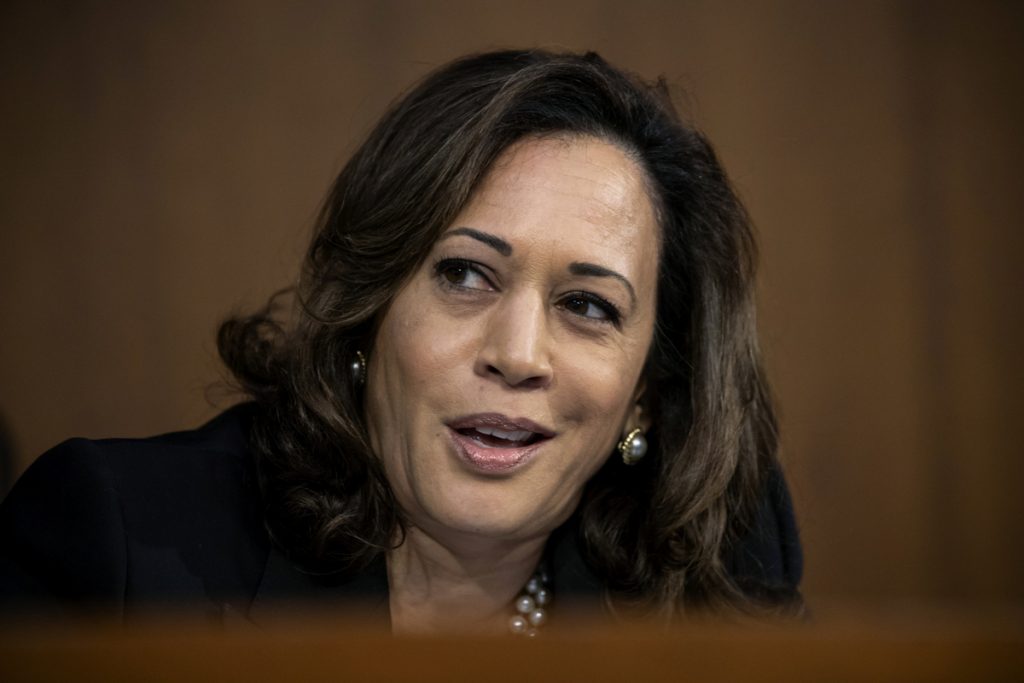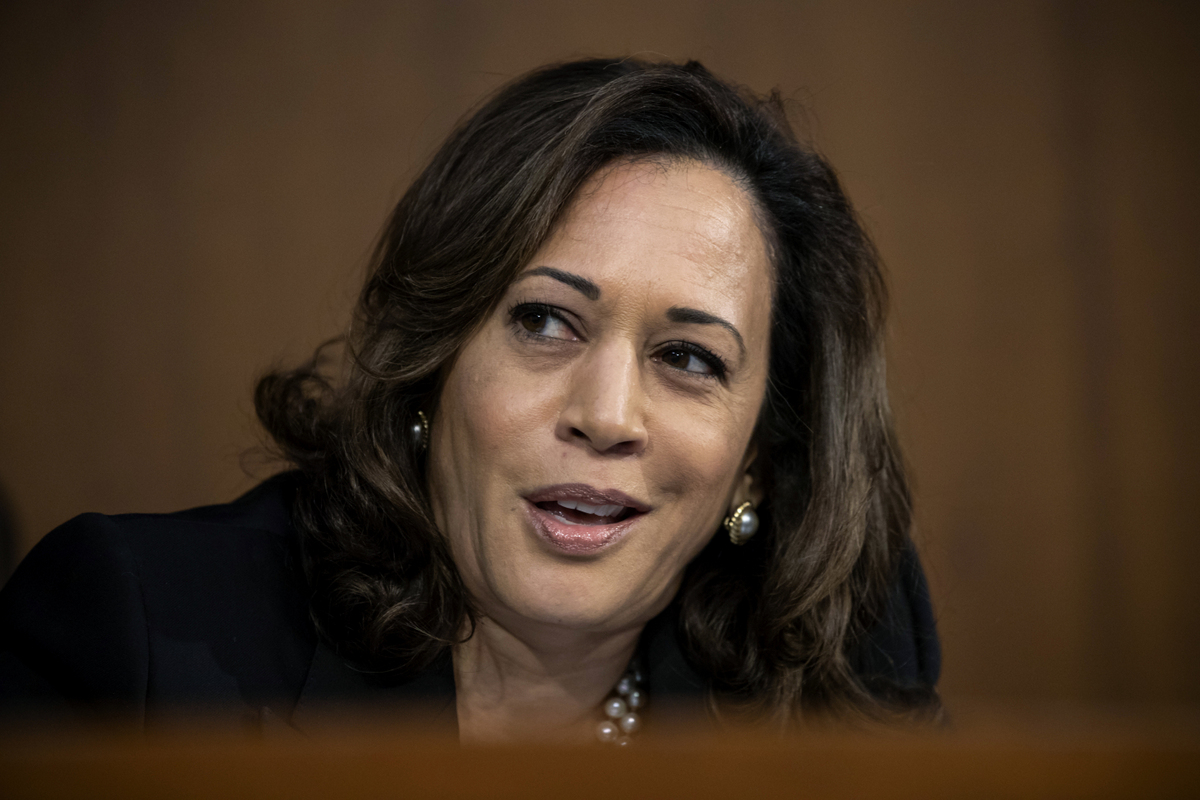[ad_1]
By BILL BARROW and MEG KINNARD, Associated Press
HOPKINS, S.C. (AP) — Declaring this midterm election year an “inflection point” in American history, Kamala Harris came Friday to South Carolina to tell Democrats that the way out of Donald Trump’s America is through the ballot box.
The California senator may have been referring to Nov. 6 elections, but her surroundings — the state that hosts the first Southern presidential primary — also carried the air of another election year: 2020.

Harris demurred when asked about her looming decision on a White House bid. Still, she brought a message that could transition easily should she join what is expected to be a crowded Democratic presidential field.
“This is a moment that is really requiring us as a country, as individuals to look in the mirror and to collectively answer a question: Who are we?” she said, later adding, “This is a moment in time that is requiring us to fight for the best of who we are.”
She bemoaned GOP efforts to dismantle the Affordable Care Act, blasted the Republican tax law as a giveaway to the rich and skewered unnamed interests trying to sow “hatred and division” in America. But the former prosecutor invoked the language of the legal profession to “reject the premise” that the U.S. is as divided as it often appears.
“The vast majority of us have so much more in common than what separates us. … Let’s speak that truth,” she told party activists who later serenaded her with “Happy Birthday.” Harris turns 54 on Saturday.
It delighted the Democratic partisans Harris greeted at get-out-the-vote rallies and a campaign phone bank, particularly women who said they were looking for a younger nominee to do what Hillary Clinton could not in 2016.
“She’s fresh, she’s new — and she has the optimism, the youth, the vigor,” said Denise Scotti-Smith, a Democratic precinct captain in the upstate town of Simpsonville.
Harris is among several potential Democratic presidential contenders in the state this week. New Jersey Sen. Cory Booker on Friday finished a two-day swing that included stops around Columbia and in Charleston. Vermont Sen. Bernie Sanders, who sought the Democratic nomination in 2016, is scheduled to be in the state Saturday. Former New York Mayor Michael Bloomberg was here Thursday. Former Vice President Joe Biden campaigned for South Carolina Democrats last weekend.
South Carolina has proven critical in Democratic politics, offering the first opportunity for would-be president to face a significant number of black voters. Harris and Booker are the only two black Democratic senators. (South Carolina’s Tim Scott is the Senate’s lone black Republican.) .
The state helped propel both Barack Obama and Hillary Clinton to the 2008 and 2016 nominations, respectively.
Harris acknowledged the importance of black voters in South Carolina and Democratic politics generally. The senator compared current national tensions to the civil rights era, describing her parents as active in that movement. She quipped that voters “can honor the ancestors with absentee ballots,” rather than waiting until Election Day.
Yet she seemed to carefully calibrate her message to a wide audience.
“Leaders should be able to see all of the people who we represent and see them equally,” she told reporters, later adding regardless of race or geography, “some of the issues are the same issues, because frankly the values are the same, and the challenges are the same for families, especially working families.”
That offered some contrast to Booker, who at multiple stops Thursday emphasized his personal and political ties within the black community.
Harris did not bring up her recent appearances — and Booker’s — on the national stage during the Senate Judiciary Committee’s consideration of Supreme Court Justice Brett Kavanaugh’s confirmation.
But several women thanked her for how she handled Christine Blasey Ford’s allegations of sexual assault against Kavanaugh. Harris said from the outset she believed Ford’s account that Kavanaugh assaulted her when they were in high school. Kavanaugh vehemently denied the accusation.
[ad_2]
Source link

